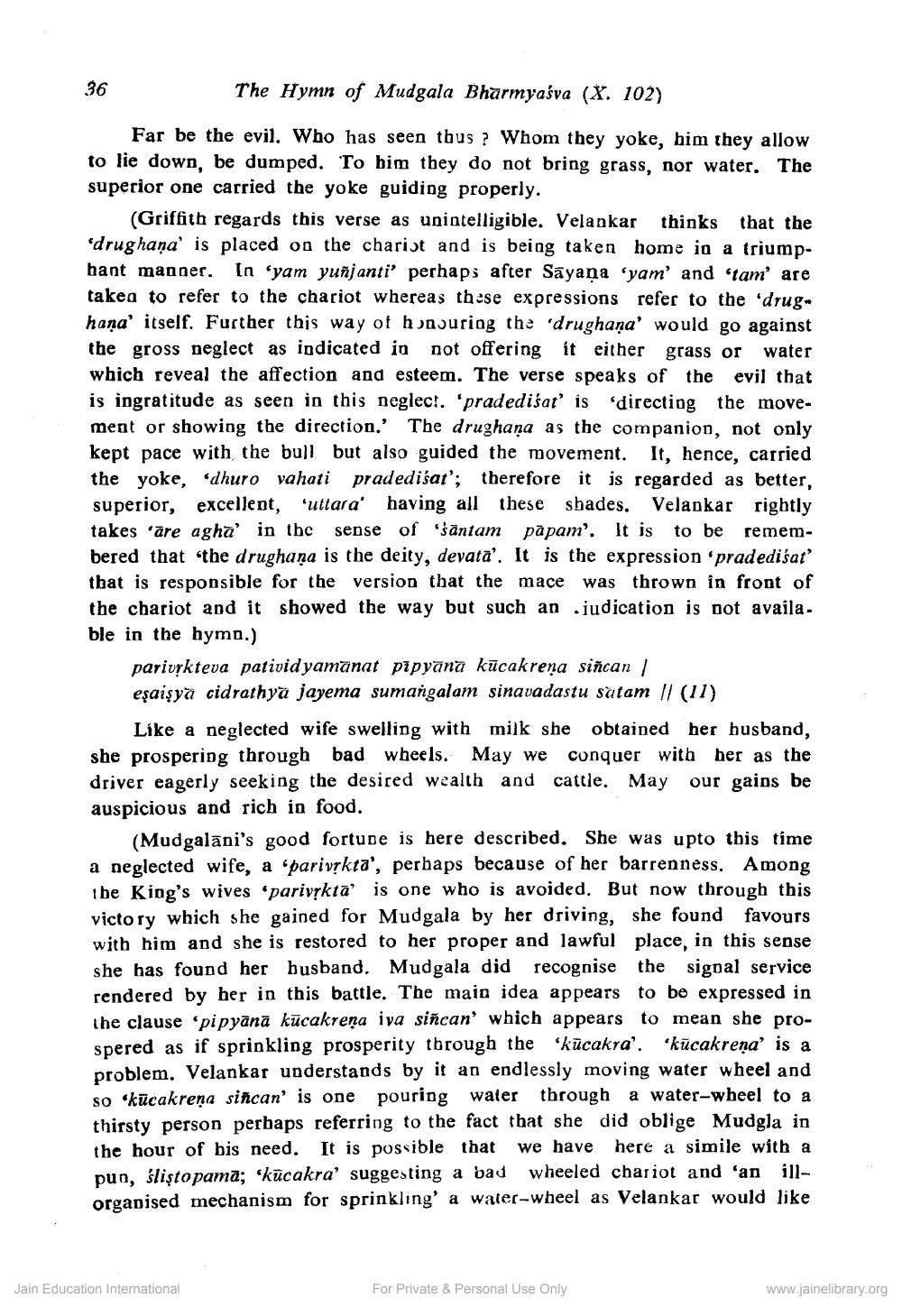________________
36
The Hymn of Mudgala Bharmyaśva (X. 102)
Far be the evil. Who has seen thus ? Whom they yoke, him they allow to lie down, be dumped. To bim they do not bring grass, nor water. The superior one carried the yoke guiding properly.
(Griffith regards this verse as unintelligible. Velankar thinks that the 'drughana' is placed on the charist and is being taken home in a triumphant manner. In 'yam yuñj anti' perhaps after Sayana 'yam' and 'tam' are takea to refer to the chariot whereas these expressions refer to the drughana' itself. Further this way of honouring the drughana' would go against the gross neglect as indicated in not offering it either grass or water which reveal the affection and esteem. The verse speaks of the evil that is ingratitude as seen in this neglect. 'pradedisat' is directing the movement or showing the direction. The drughana as the companion, not only kept pace with the bull but also guided the movement. It, hence, carried the yoke, dhuro vahati pradediśat'; therefore it is regarded as better, superior, excellent, 'uttara' having all these shades. Velankar rightly takes 'are agha' in the sense of 'śāntam papam'. It is to be remembered that the drughana is the deity, devata'. It is the expression 'pradediśat' that is responsible for the version that the mace was thrown in front of the chariot and it showed the way but such an judication is not availa. ble in the hymn.)
pariurkteva pativid yamanat pipyāna kūcakrena siñcan / eşaişya cidrathya jayema sumangalam sinavadastu satam 11 (11)
Like a neglected wife swelling with milk she obtained her husband, she prosperiog through bad wheels. May we conquer with her as the driver eagerly seeking the desired wealth and cattle. May our gains be auspicious and rich in food.
(Mudgalāni's good fortune is here described. She was upto this time a neglected wife, a parivrkta', perhaps because of her barrenness. Among 1 be King's wives ‘parivykta' is one who is avoided. But now through this victory which she gained for Mudgala by her driving, she found favours with him and she is restored to her proper and lawful place, in this sense she has found her husband. Mudgala did recognise the signal service rendered by her in this battle. The main idea appears to be expressed in the clause pipyānā kūcakreņa iva siñcan' which appears to mean she prospered as if sprinkling prosperity tbrough the "kūcakra'. 'kūcakrena' is a problem. Velankar understands by it an endlessly moving water wheel and so kūcakrena siñcan' is one pouring water through a water-wheel to a thirsty person perhaps referring to the fact that she did oblige Mudgla in the hour of bis need. It is possible that we have here a simile with a pun, ślisto pama; "kücakra' suggesting a bad wheeled chariot and 'an illorganised mechanism for sprinkling' a water-wheel as Velankar would like
Jain Education International
For Private & Personal Use Only
www.jainelibrary.org




